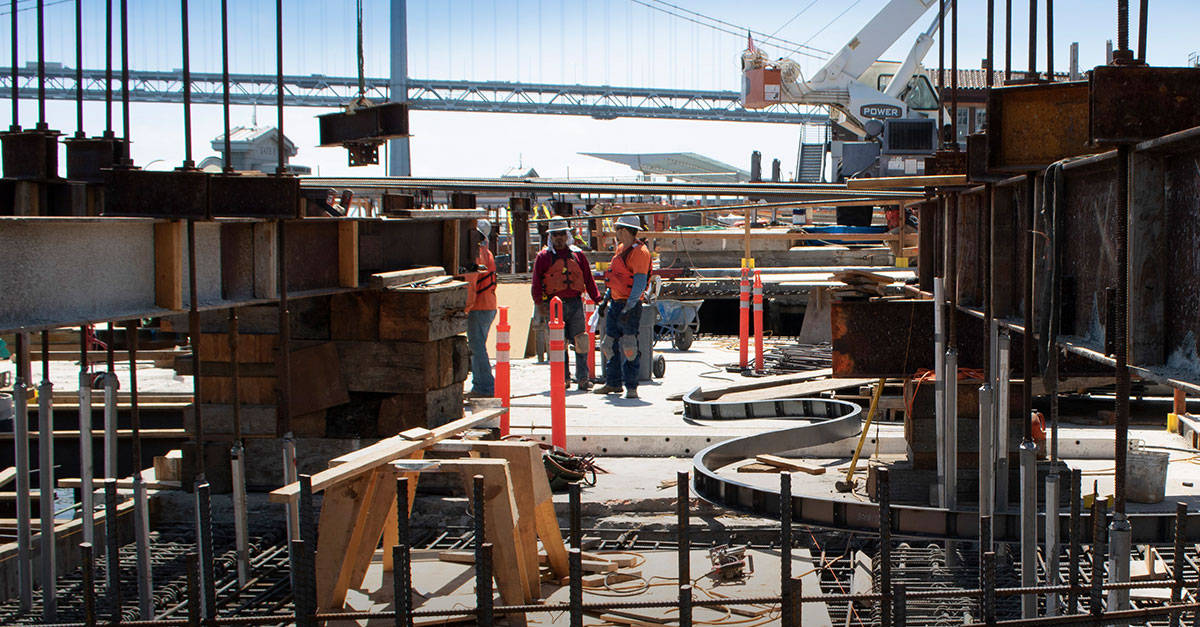Residential Development Construction Software
Residential contractors need a single source of truth; reliable residential construction software that connects each player and helps them adapt to change — especially in a field of this size! According to the U.S. Census and the U.S. Department of Housing and Urban Development, contractors are building more homes than ever; in fact, 1.2 million new homes broke ground in September. While this is great for the economy and exciting for builders, there is one looming concern: the increase in construction costs and availability of labor. Last year, according to the National Association of Home Builders (NAHB) the cost and availability of labor remained the number one concern for builders, who are embracing technology to meet housing demands and enable craftspeople to do more with less. In this post we explore how Level Homes is innovating with residential construction software to keep up with demand.
Being more efficient in the field has helped residential construction companies and contractors, like Level Homes in Baton Rogue, operate successfully amid affordability concerns. New home prices are at an all-time high, 27% above 2005 after adjusting for inflation. Using Fieldwire’s platform and mobile construction app, Level Homes can conduct digital QA/QC and inspections on-the-fly, collaborate with trades and specialty contractors and communicate on-site in real-time. In part due to the efficiencies gained with Fieldwire, Level Homes will complete almost 300 new homes by the end of 2018, and they say they’re prepared to do it all again next year.

Connect your dispersed teams
When it comes to building a home, there are many players to consider: the concrete sub, electrician, plumber, tiler, carpenter, painter. . . The list goes on. Keeping all of these people on the same page is critical to the success of your project. If one player makes a mistake or causes a delay, the whole team fails, and the game runs overtime at a significant cost. That’s why it's important to use residential field management software that connects all of your trades in one place with a single residential construction communication platform. With Fieldwire, residential construction managers at Level Homes no longer need to be on-site at all times to communicate with trade technicians.
Beyond communication, a field construction app that automatically updates everything from constructon dalies to blueprints whenever a change is made ensures each tradesperson works from the right set of drawings. Furthermore, being able to communicate from the field in real-time with contractors in the office helps projects progress quickly — shaving hours off your building process and moving homeowners into their new houses on-time.
Conduct punch on mobile
As you know, the sooner a residential construction punch list reaches zero, the sooner your client moves into their home. That’s why it’s important to have an efficient residential construction software-based punch process and one that can be conducted on-the-fly. We’ve seen many residential contractors use their smartphone or tablet onsite to dramatically reduce time spent on punch. Contractors at Level Homes, for example, use Fieldwire tasks on their iPhones to pin a deficiency directly to a plan, add relevant context or photos, and assign it to the right contractor in the field. Then, as building progresses, all communication related to this issue is linked back to the task, which prevents important information from falling through the cracks. Even more, Level Homes creates a template for each type of common deficiencies and duplicate the templates across locations that need a QA/QC review — ultimately boosting productivity and delivering homes on schedule.
Go paperless on the job site
Paper blueprints or plans are not only bulky and expensive to produce, but keeping track of incremental changes from multiple sources — including the architect and the engineers on the project — is a big headache. To avoid this problem entirely, Level Homes rarely enter a job site with a residential architectural paper plan at all, or with a pen, notepad, or spreadsheet. The only tool they need to operate efficiently in the field is located in their pocket. From any smartphone or tablet, they can add markups, annotations, and attachments to floor plans, and collaborate more effectively with residential contractors — even when they’re working offline!
This level of collaboration, achieved with Fieldwire's residential construction technology, translates into significant cost and time savings for Level Homes. Money is no longer wasted on printing revised drawing sets, and lengthy email threads or phone calls are no longer needed to get missing information or the latest plans. Everyone can focus entirely on their operational mission, which increases the general productivity.
Communicate in real-time
It’s not enough to use a residential construction app or software to manage your plans or punch lists. As a home builder, you must also find a way to communicate and collaborate in real-time across not just a single job site, but many different sites, simultaneously. In contrast to high-rise construction, where a team often works on a single building at a time, in residential construction, you might be working on dozens of different houses in a new subdivision, all at once.
To help with the communication challenges that ensue, Level Homes use Fieldwire tasks to communicate in real-time with trades or vendors instead of sending an email or making a call. This ensures everyone is always on the same page when it comes to the status of a certain issue, and no work gets delayed by costly miscommunication. With real-time alerts and instant messaging, construction managers can finally focus on the work they need to do; coordinating projects, delegating tasks, and, ultimately, driving productivity. With Fieldwire’s construction management software storing all communication in one place, Level Homes can see who is doing what and when, to not only understand the building process but to hold all construction contractors accountable for their work.
Documenting all work in one, easy to view place has saved Level Homes a great deal of trouble, but more importantly, it has saved them time and money. To learn more about residential construction technology and how to operate smarter and faster today, using any device in the field, read our full coverage on Level Homes’ success.

 Tara Callinan •
Tara Callinan • 
















